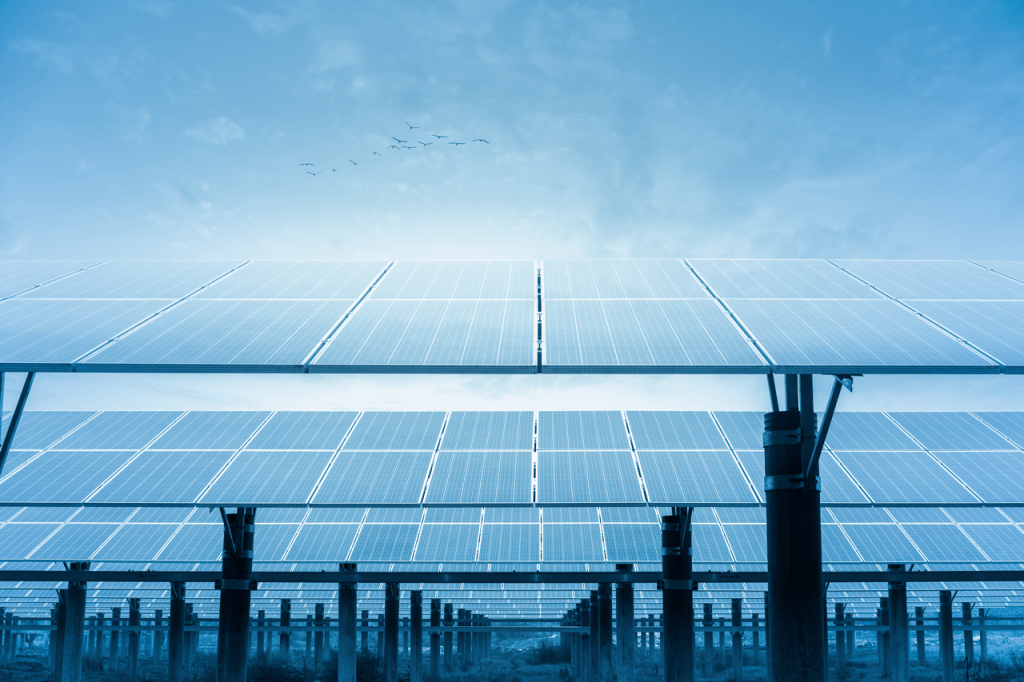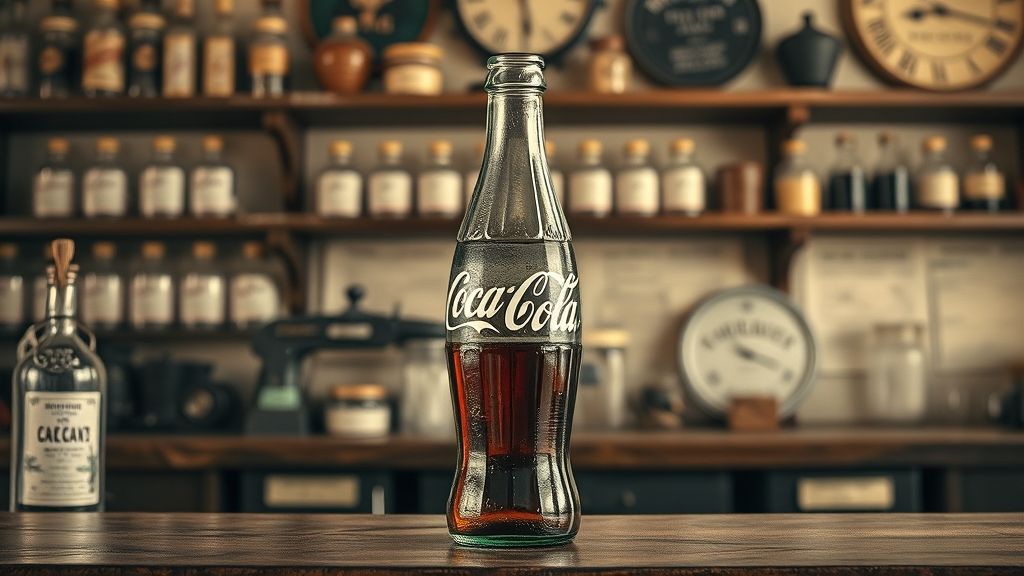- DEFINITION:
“A panel designed to absorb the sun’s rays as a source of energy for generating electricity or heating.”
Panel*=a flat or curved component, typically rectangular, that forms or is set into the surface of a door, wall, or ceiling.
DESCRIPTION:
A solar panel is a collection of solar or photovoltaic cells, which can be used to generate electricity through the photovoltaic effect. These cells are ordered in a grid-like pattern on the surface of solar panels.
Thus, it may also be described as a set of photovoltaic modules, mounted on a structure supporting it.
A photovoltaic (PV) module is a packaged and connected assembly of 6×10 solar cells. When it comes to wear-and-tear, these panels are very hardy. Solar panels wear out extremely slow. In a year, their effectiveness decreases only about one to two percent at times, even lesser.
Most solar panels are made up using crystalline silicon solar cells.
WORKING OF SOLAR PANELS:
Solar panels are made out of photovoltaic cells that convert the sun’s energy into electricity.
Photovoltaic cells are sandwiched between layers of semiconducting materials such as silicon. Each layer has different electronic properties that energize when hit by photons from sunlight, creating an electric field. This is known as the photoelectric effect – and it’s this that creates the current needed to produce electricity.
Solar panels generate a direct current of electricity. This is then passed through an inverter to convert it into an alternating current, which can be fed into the National Grid or used by the home or business to which the solar panels are attached to.
ADVANTAGES OF SOLAR PANELS:
1. No Green House Gases:
The first and foremost advantage of solar energy is that, beyond panel production, it does not emit any greenhouse gases.
Solar energy is produced by conducting the sun’s radiation – a process void of any smoke, gas, or other chemical by-products.
2. Free Energy :
Another advantage of using solar energy is that beyond initial installation and maintenance, solar energy is free.
Solar doesn’t require expensive and ongoing raw materials like oil or coal and requires significantly lower operational labor than conventional power production. Raw materials don’t have to be constantly extracted, refined, and transported to the power plant.
Life expectancy ranges between manufacturers, but many panels produced today carry a 25-30 year warranty – with a life expectancy of up to 40 years.
3. Decentralization of power :
The decentralization of power depends upon the sunniest location.
Oil, coal, and gas used to produce conventional electricity are often transported cross-country or internationally. This transportation has a myriad of additional costs, including monetary costs, pollution costs of transport, and roading wear and tear costs, all of which are avoided with solar.
Of course, decentralization has its limits as some locations get more sunlight than others.
4. Going off the grid with solar :
Solar energy can be produced on or off the grid.
On-grid means a house remains connected to the state electricity grid. The off-grid has no connection to the electricity grid, so that place is being powered is relying solely on solar energy.
The ability to produce electricity off the grid is a major advantage of solar energy for people who live in isolated and rural areas. Many city-dwellers are also choosing to go off the grid with their alternate energy as part of a self-reliant lifestyle.
5. Solar jobs :
A particularly relevant and advantageous feature of solar energy production is that it creates jobs.
The EIAA states that Europe’s solar industry has created 100,000 jobs so far.
Solar jobs come in many forms, from manufacturing, installing, monitoring, and maintaining solar panels, to research and design, development, cultural integration, and policy jobs.
With solar energy currently contributing only an estimated 4% of the world’s electricity, and an economic model where raw materials don’t have to be indefinitely purchased and transported, it’s reasonable to assume solar jobs are sustainable if the solar industry can survive the recession.
6. Saving eco-systems ;
Because solar doesn’t rely on constantly mining raw materials, it doesn’t result in the destruction of forests and ecosystems that occurs with many fossil fuel operations. Destruction can come in many forms, from destruction through accepted extraction methods, to more irresponsible practices in vulnerable areas, to accidents.
7. The best is still on way:
Solar technology is currently improving in leaps and bounds. Across the world, What was expensive, bulky, and inefficient yesterday, is becoming cheaper, more accessible, and vastly more efficient each week.
INSTALLATION OF SOLAR PANELS:
Installation of solar panels in homes helps in combating the harmful emissions of greenhouse gases and thus helps reduce global warming. Solar panels do not lead to any form of pollution and are clean. They also decrease our reliance on fossil fuels and traditional power sources.
Do solar panels save money?
Solar panel saves money by reducing electricity bill by cutting down the amount of energy you use is no fluke. Solar panels give you the ability to save money by creating a natural source of energy that can power your home. If you’re looking to save a ton of money, it depends on a few key factors:
• Direct hours of sunlight
• Local electricity rates
• size of your pool
How Does Solar Energy Save Money?
If your average monthly electricity bill is high, and you’re living in an area with high energy rates then it’s worthwhile installing solar panels in your home while the tax break is in place. It is not only beneficial for you but also good for the environment. Here are a couple of reasons why you should install solar panels:
• The price of energy is not dropping
• The cost of installing solar panels has improved and prices have fallen
• Installing solar panels provides long-term subsidy benefits
• Save money on your pension by reducing energy costs on your monthly electricity bill
• Solar panels are long-lasting and require little upkeep
How Much Does It Cost to Install Solar Panels?
With the best quality Solar panels and solar inverters, a 5KW Solar panel costs up to Rs 750,000. How much it costs to install solar panels depends on how many solar panels you need to generate energy for your home. The best part is, how much solar panels cost upfront is offset by the savings and return on investment they earn.
The average cost of solar panels and their upfront cost can be offset by the federal tax credit, which currently sits at 26 percent. After 2020, the tax credit will step down to 22 percent. So the sooner you take advantage of the full credit, the better. The federal tax credit was created to encourage investment in solar systems and renewable energy, and claiming it is a matter of filling out the right IRS Form.
Besides the federal tax credit, solar panels increase property values while lowering utility bills.
Compared to gas or electric heating systems, solar panels save you much more in the long run. Your solar panel system can pay for itself in three years.
Are Solar Panels Efficient?
Some solar panels convert 22 percent of their available energy into electrical power. This is an amazing number if you consider the fact that we are paying a lot of our electricity bills every month. The solar panels are made of solar cells. As soon as the light is removed, the solar cell stops producing power. A solar pool heating system uses the sun’s radiant energy to heat your water.
Do solar power panels work on rainy days or at night?
No. Clouds cut the efficiency of solar panels significantly.
Solar panels react to the visible light spectrum. This means, if it’s light enough to see, there’s enough light for solar panels to start generating electricity. But the stronger the sunlight, the more powerful solar panels will generate. For that matter, solar panels generate a fraction of a watt on clear nights from the light of the moon and stars. Solar panels do not store electricity at all. When light falls on a solar panel, it knocks electrons off the substrate and those electrons are collected. This creates a voltage, The moving electrons also constitute an amperage. The electricity is fed to inverters which convert the direct current into alternating current which is compatible with the electricity on the grid.
If you want to store the electricity your solar panels generate for later use (at night or on rainy days), you will need a battery or other device for storing electricity. Unfortunately, battery technology has not kept up with solar panel technology. Solar panels have a useful life of about 40 years. Most batteries wear out in 5 years or less and must be replaced at vast expense regularly.
Conclusion :
Solar panels and solar panel systems will save you money and bring a return on your investment in no time… Since the price of energy isn’t dropping, investing in solar energy is the smart move. These days, solar panels are used in wide-ranging electronic equipments like calculators, which work as long as sunlight is available.
However, the only major drawback of solar panels is that they are quite costly. Also, solar panels are installed outdoors as they need sunlight to get charged.
Solar Panel in Pakistan
The solar panel will not only help the country to recover from its energy crisis but after the one-time fitting of the panels, the cost can’t exceed the high electricity bills which you are paying every month. It’s better to go for Solar Energy, which means having the biggest tun on Solar panels.
So, Are you READY to go SOLAR!!!








